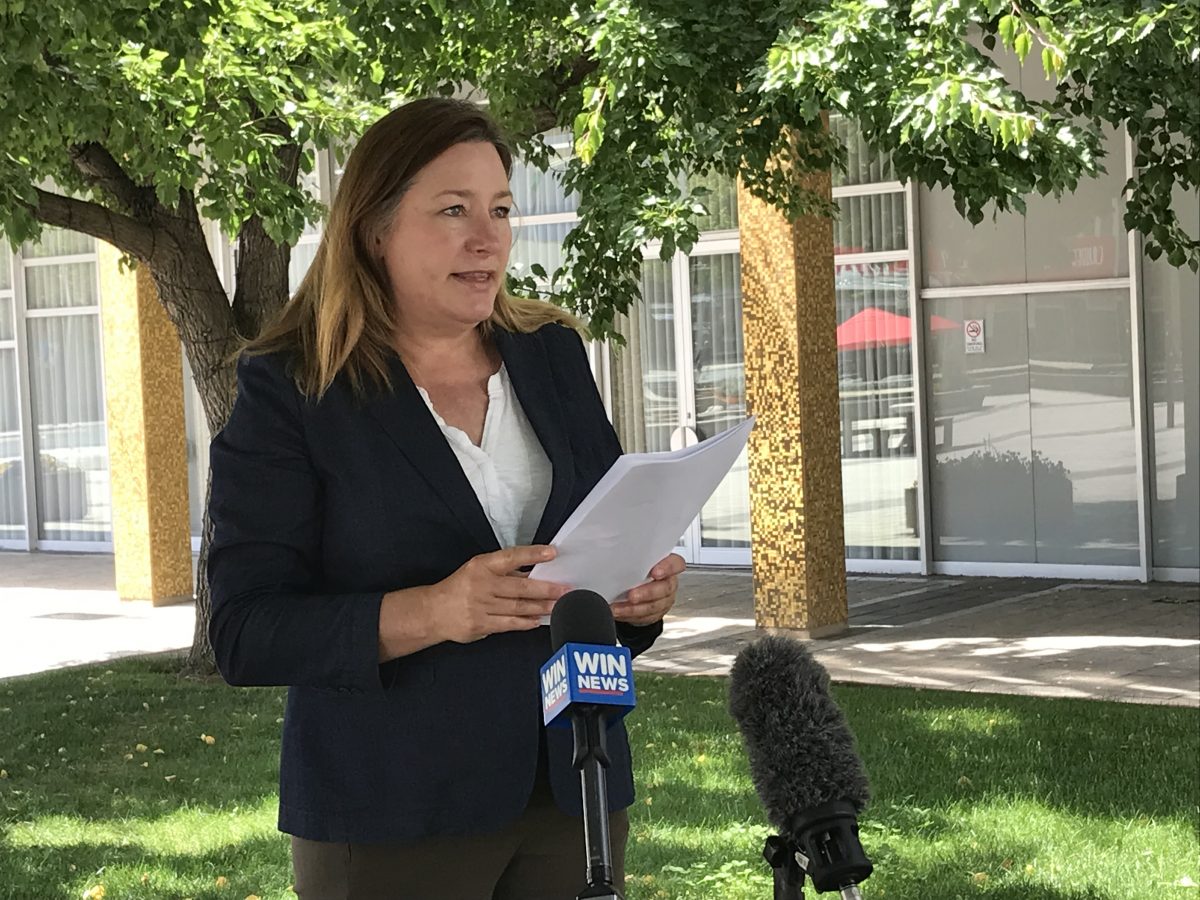
Minister for Education Yvette Berry has long been a vocal opponent of NAPLAN and how it is reported. Photo: Lottie Twyford.
Although things looked a little different for the 1.2 million students who began NAPLAN testing this morning, familiar criticisms were levelled at the often controversial assessment tool.
Instead of sharpening pencils, students and teachers plugged laptops in to charge as all schools and students across the country sat online versions of the numeracy and literacy tests for the first time.
It’s a move that has been touted as having made the assessment more precise and engaging for students.
The Education Directorate said around 20,000 Canberra students would complete the tests this year.
The majority of ACT students have sat NAPLAN online since 2019, and the Territory’s Education Minister Yvette Berry has, despite this, remained a vocal critic of the assessment tool.
“Over the years, I have made my frustrations with NAPLAN testing … very clear,” Ms Berry explained.
She said she was especially concerned by how NAPLAN results are reported which “tends to lead to competition between schools that is unhelpful and artificially raises the stakes of the test”.
Ms Berry said the assessment should be viewed only as a narrow, point-in-time assessment that provides limited information on some subjects.
She encouraged parents to interpret the information as a snapshot of their child’s progress or as a trigger to lead to a conversation with their child’s teacher or principal about their school’s approach to learning.
“I stand by the professionals who have always been clear that it is the assessment that teachers do of student learning each and every day that has the greatest impact on student learning,” she said.
“This should be the starting point for any parents or carers who want to know how their child or young person is going with both their learning and their wellbeing.”
Australian Curriculum, Assessment and Reporting Authority (ACARA) CEO David de Carvalho said the online testing meant questions could be tailored so students are given questions better suited to their abilities.
If students answer questions incorrectly, the adaptive test can then provide them with a different pathway to continue with.
“NAPLAN online also has a variety of accessibility adjustments so that students with diverse capabilities, learning needs and functional abilities are able to participate,” he explained.
Mr de Carvalho said the tests this year were critical to help understand the impact of two years of pandemic-related disruptions and confirmed contingency plans had been prepared.
From next year, NAPLAN will take place in March as part of efforts to eliminate the practice of ‘teaching to the test’.
That move would also mean data could be returned to schools more rapidly and was a key recommendation of an independent review into NAPLAN previously commissioned by the ACT, NSW, Victoria and Queensland.
Last year’s NAPLAN data showed the ACT continued to slip backwards from the nation-leading position it once held.
In three-quarters of the data categories, the Territory recorded a mean score that fell below the national benchmark.
However, closer inspection of the data showed most students were making progress between years three and five and seven and nine in reading, writing and numeracy in line with their interstate peers. ACT students progressed more slowly than their peers in numeracy and in secondary school for the most part.
Opposition spokesperson for education Jeremy Hanson said last year ACT students have been chronically underperforming for years and the “latest NAPLAN results just highlight the problem”.
He has long called for an independent review of the Territory’s education system.
Original Article published by Lottie Twyford on Riotact.




